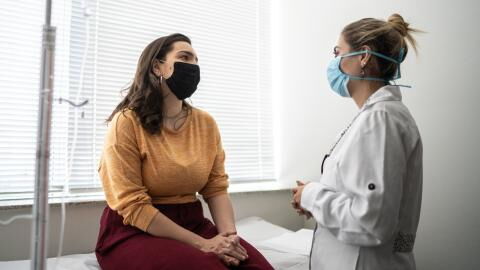Whether it's because your period is on its way, or you're currently on your period, lower abdomen pain has been a problem that women have dealt with for a very, very long time. So much so that it has become normalized and often goes unquestioned when it does happen.
Discover our latest podcast
But studies show that lower abdomen pain is one of the tell-tale signs of ovarian cancer and, as we all know, the earlier the detection the greater the chances are of survival. So, with all of this in mind, when should you go see a doctor if ever you find yourself experiencing lower abdomen pain?
Who is most likely to experience ovarian-related pain?
First, ovarian related pain is most present in women who have the ability to menstruate. There are two types of pain; those that are cyclical (which are directly related to your menstrual cycle) and those that are chronic (no apparent link to one's menstrual cycle is present).
Also, for those of you who take contraceptive measures, the extra dose of hormones that are injected into your body can actually trigger ovarian pain. For this reason, this pain is seen as 'passing' and often also considered to not be very serious.
When should a doctor get involved?
But the moment that you should be alerted is when a particular pain does not go away even after having taken over-the-counter medication to treat it (such as a paracetamol for instance).
If ever your pain is accompanied by a discharge or a heavier-than-normal period flow, then that should also warrant a visit to the doctor's. Fevers are also indicators of an underlying problem that requires medical attention.
Finally, having unprotected sexual intercourse can be conducive to lower abdomen pain as is the case with chlamydia and salpingitis (inflammation of the fallopian tubes).















